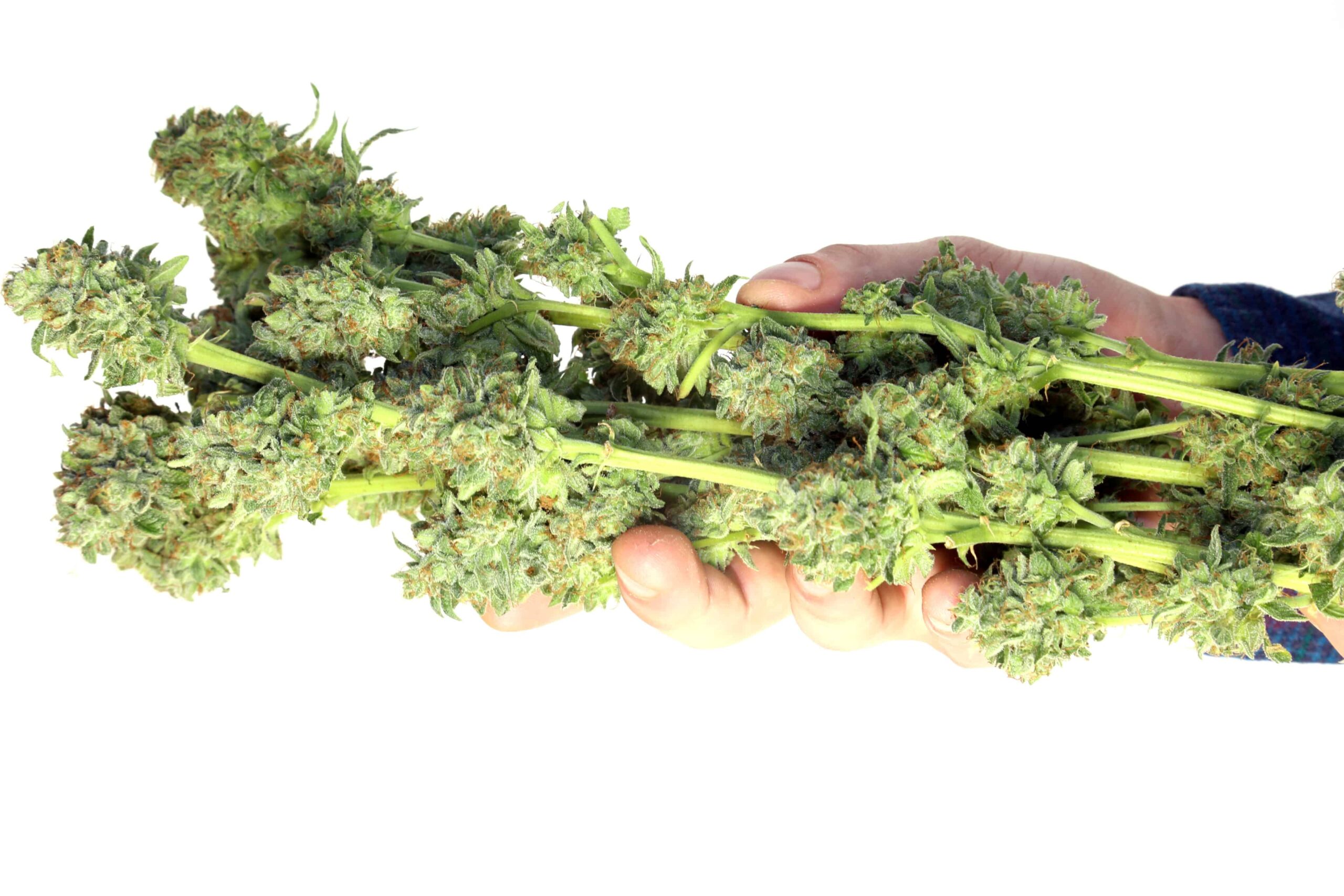
Colorado Lawmakers Unveil Delta-8 THC Regulatory Bill
Two Colorado lawmakers have introduced bipartisan legislation to regulate intoxicating hemp-derived cannabinoids, including the increasingly popular compound delta-8 THC. The measure, Senate Bill 271, was introduced earlier this month by Republican Senator Kevin Van Winkle and fellow Democratic Senator Dylan Roberts.
Last year, Colorado lawmakers passed legislation authorizing the Colorado Department of Public Health & Environment (CDPHE) to begin the process of regulating hemp containing intoxicating cannabinoids, including delta-8 THC, a compound that can be made from CBD . While not as potent as Delta-9 THC, the cannabinoid associated with the classic marijuana high, Delta-8’s legality under the 2018 Farm Bill has led to products containing the compound appearing in retailers , including convenience stores and smoke shops. Often the products are marketed with no restrictions such as maximum potency or a minimum age for buyers.
The law, passed in 2022, also established a task force to study intoxicating hemp-cannabinoid products and make recommendations for legislation and regulations. The task force’s recommendations were then used as the basis for Senate Bill 271, according to the measure’s sponsors.
“Super-potent products can be bought online by anyone, including teenagers,” said Truman Bradley, task force member and executive director of the Marijuana Industry Group, a trade association for regulated cannabis companies in Colorado.
Bill regulates Delta 8 THC serving size
Under the new legislation, hemp products with more than 2.5 milligrams of delta-8-THC would be regulated and sold only at licensed cannabis dispensaries in the state. The sale of Delta-8 THC products through unregulated outlets such as convenience stores or online retailers would be prohibited.
Senate Bill 271 also mandates the CDPHE to regulate and register hemp products, including certain intoxicating hemp products. The State Department of Revenue’s Marijuana Enforcement Division would regulate intoxicating products through administrative regulations that would either permit or prohibit the chemical modification, transformation, or synthetic derivation of hemp compounds to produce certain types of intoxicating cannabinoids. The agency would also be responsible for establishing labeling and advertising requirements, production and testing rules, and inspection and record-keeping standards.
Van Winkle said he has some concerns about the legislation, which may be changed as the bill goes through the Legislative Committee process.
“Most of the current legislation comes directly from the task force,” Van Winkle said. “Now we need to make some changes to it. At the moment I think the limits are a bit too high.”
“That’s probably enough to get people high in Colorado, especially kids,” Van Winkle added. “So we may need to lower that limit and then set an overall packet size limit.”
Senate Bill 271 also does not place restrictions on the number of servings that can be contained in a package, leading to the possibility of products containing high levels of delta-8 THC being contained in a package.
“Right now, the bill does not include a maximum package limit for THC,” Bradley said. “So you could have an unlimited amount of gummies, 2.5 milligrams each. That’s a problem.”
In a statement released last week, the Marijuana Industry Group said the intoxicating hemp market “sells hundreds of millions of dollars annually in totally unregulated, untaxed products with no ID checks, purchase restrictions, or security restrictions. Under current law, children can buy these products, which are often shaped like popular candies, online and have them delivered anywhere or even pick them up at a local gas station or grocery store.”
In 2021, the Colorado Department of Health and Environment, in conjunction with the Marijuana Enforcement Division and the Department of Revenue, issued a policy memo to clarify that chemical modification or conversion of cannabinoids from industrial hemp is not permitted. But Robert Hoban, an attorney specializing in cannabis law, said the policy was unenforceable.
“The state of Colorado issued a policy statement last year that says you can’t sell these compounds in the state,” Hoban said. “It’s not the law. This is just a policy memo.”
Bret Worley, the CEO of hemp-derived cannabinoid wholesaler MC Neutraceuticals, said he supports the current version of Senate Bill 271.
“I really don’t think there’s any risk or concern at two and a half milligrams for a hemp-derived cannabinoid product,” Worley said, adding that he believes parents need to take responsibility for children’s well-being.
“I think like all medicines, they should be locked up somewhere where a child can’t reach them,” he said.
Senate Bill 271 has been assigned to the Senate Finance Committee, which has scheduled an April 18 hearing on the bill.

Post a comment: